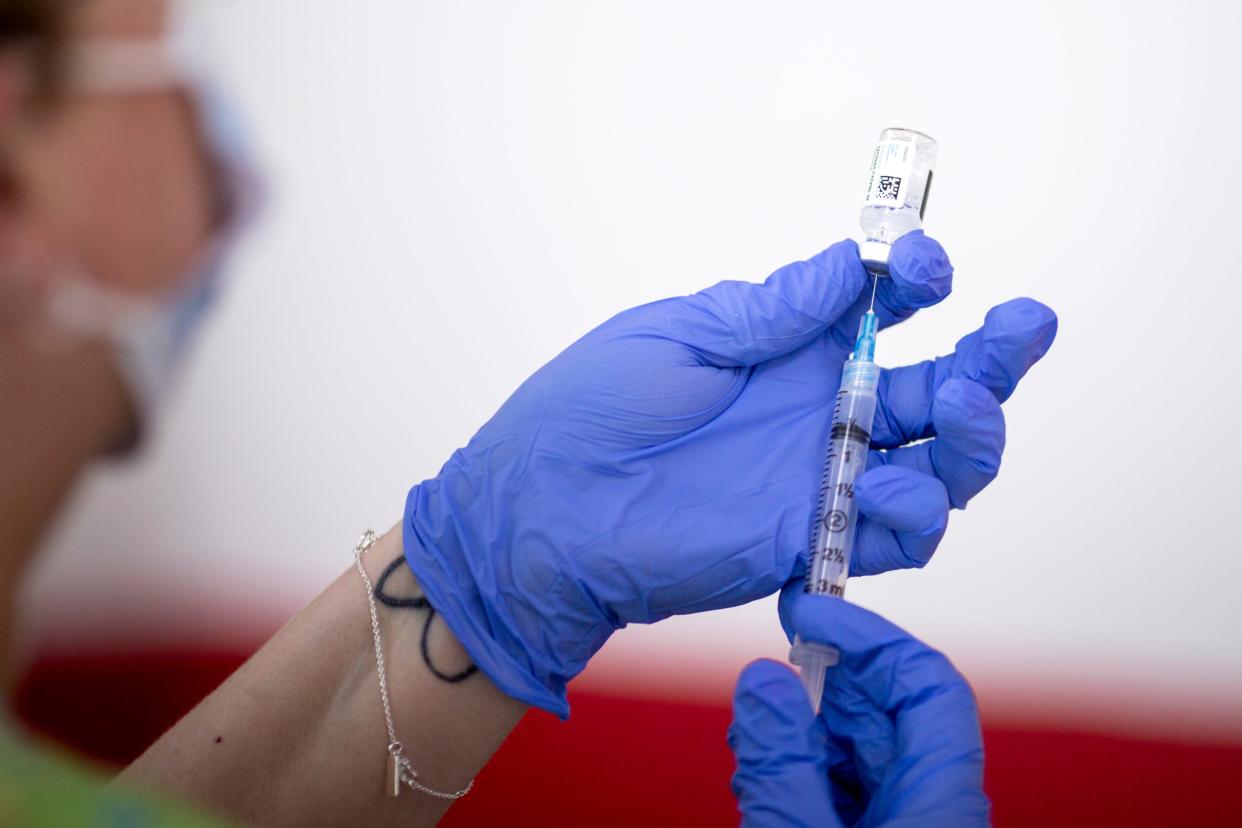What is RSV? How is it treated? Everything you need to know about the virus

It's not a new virus, but the buzz hasn't slowed down surrounding a certain sickness that pops up during flu season.
Respiratory syncytial virus, or RSV, affects the lungs. Symptoms are usually mild, but the virus can also be very severe. Here's what to know about RSV as we continue flu season.
What is RSV? How does it spread?
Respiratory syncytial virus, or RSV, is a common virus that causes infection of the lungs and respiratory tract.
It spreads if an infected person coughs or sneezes and the droplets touch you, if you have direct contact with someone with the virus, or if you touch a surface like a doorknob that has been contaminated by the virus.
Who's most at risk for contracting RSV?
Babies, small children and older adults are more likely to get sick with RSV. Almost all children will contract RSV by their second birthday, according to the Centers for Disease Control and Prevention.
An estimated 58,000 to 80,000 children younger than 5 years old are hospitalized with RSV in the U.S. each year, according to the CDC. At higher risk are premature infants, children 12 months or younger, children with weakened immune systems, and children with neuromuscular disorders that cause difficulty swallowing or clearing mucus secretions.
Between 60,000 and 160,000 older adults in the U.S. are hospitalized with RSV each year, and 6,000 to 10,000 of them die from the virus. Adults with chronic or underlying medical conditions, such as chronic heart or lung disease, immunocompromised adults, and those living in nursing homes and other long-term care facilities are most at risk.
What are the symptoms and how can I relieve them?
Symptoms of RSV typically appear within four to six days of infection. Runny nose, coughing, sneezing, fever or wheezing are all signs pointing to the virus, as well as a decrease in appetite. Babies will experience irritability, decreased activity and breathing difficulties.
You can manage fever and pain with fever reducers and pain relievers that you can buy over the counter, such as acetaminophen or ibuprofen, but talk to a pediatrician before giving your child nonprescription cold medicines. Be sure to drink fluids to prevent dehydration.
Most people recover in a week or two.
Can RSV cause long-term health problems?
Long term, RSV can cause additional infections, like bronchiolitis and pneumonia. Children younger than 1 year old are more likely to develop these more severe infections. Older adults and young babies may need additional oxygen or IV fluids, intubation or medical ventilation.
Is there a vaccine for RSV?
Yes, but dosages for adults and children are different.
Adults 60 and older can get a single dose of RSV vaccine. Infants and young children should get the shot before or during their first RSV season, and another one after entering their second RSV season. Pregnant people can receive the shot, too, but it's a different brand.
More information about vaccines and the virus can be found on the CDC's website.
This article originally appeared on Cincinnati Enquirer: RSV: What to know about the illness, how to treat it, vaccinations

